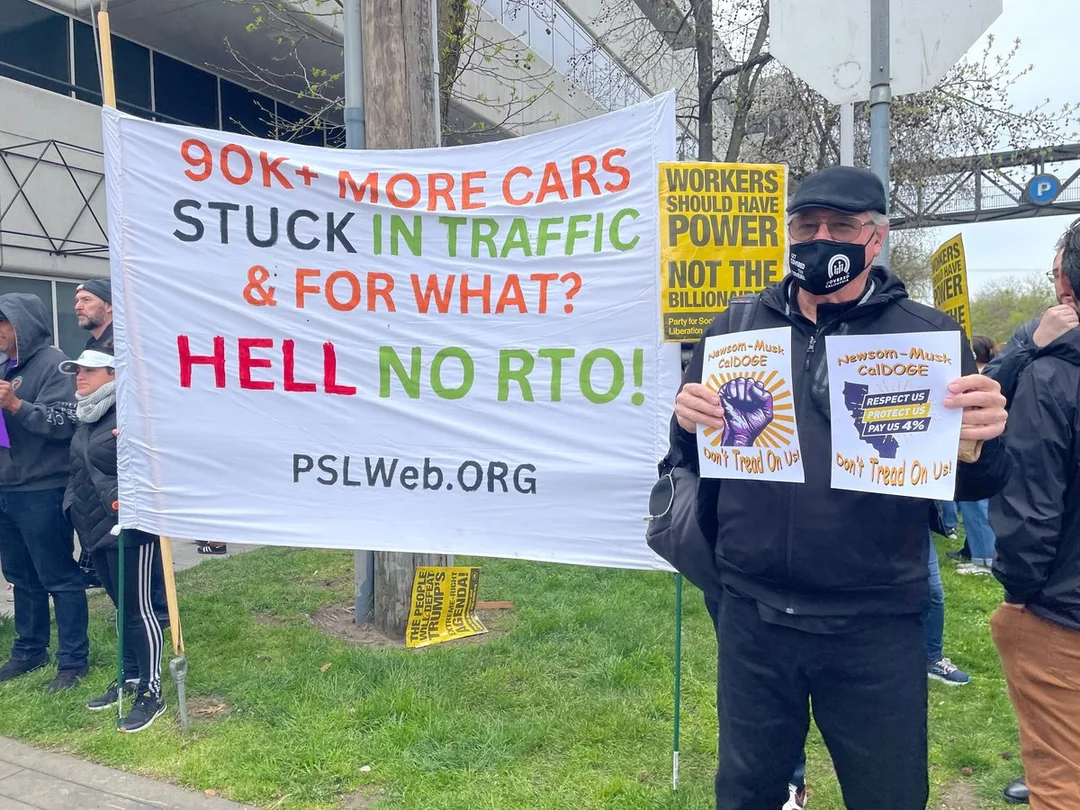
Is California’s Return-to-Office Order a Step Backward for State Workers?
As California prepares to mandate a return to in-person work for state employees, many are left questioning the rationale and implications of this controversial policy. Governor Gavin Newsom's executive order, which requires roughly 95,000 state workers to return to the office four days a week starting July 1, has sparked significant backlash from employees and lawmakers alike.
The Governor's order has been met with skepticism from state legislators, particularly during a recent Budget Subcommittee hearing. Assemblymember Christopher Ward, representing San Diego, voiced concerns about the lack of a cost analysis accompanying this directive. "I think that we absolutely should be looking at things through a cost lens, especially in a very difficult state budget year right now where we are trying to save every nickel that we can find," Ward emphasized. This reflects a broader sentiment among employees worried about the financial implications of increased commuting and associated costs.
On March 12, 2025, protests erupted outside the California Department of Human Resources as state workers expressed their displeasure with the return-to-office mandate. Many employees fear that this policy could diminish their well-being, as remote work has been shown to enhance productivity and job satisfaction. One state worker, Pete Nelson, a senior environmental scientist, stated, "I’m not going to stick around if this policy is maintained." Such sentiments suggest that the mandate could lead to talent loss and decreased morale across state departments.
Critics of the policy also cite environmental concerns, with increased traffic potentially harming California's collective ecological health. The influx of commuters could strain already congested roads, contributing to air pollution and increased carbon emissions. Nelson reiterated this sentiment by explaining how the order would negatively affect the ecological health of the Central Valley.

On the other hand, some believe that in-person work fosters community and creativity, as suggested by Newsom. During a press event, he claimed that office work not only improves productivity but also benefits local businesses. However, the lack of empirical evidence supporting these claims raises questions about the motives behind the mandate. Critics argue that reverting to pre-pandemic policies may be out of touch with the evolving landscape of work.
The Professional Engineers in California Government union is actively challenging Newsom's order, filing a complaint with the state Public Employment Relations Board on the grounds that it violates collective bargaining rights. Their argument centers on the premise that any change to telework policies must be negotiated. Union representatives are adamant that the governor’s swift decision violates labor laws and lacks the necessary input from affected workers.
With potential legal battles on the horizon, the question remains whether Newsom's administration will reassess this directive. Given the wide-ranging concerns voiced by both state employees and lawmakers, the return to the office could prove to be a contentious issue with lasting consequences.
As discussions continue, it's essential to consider if such policies genuinely serve the best interests of California's workforce and economy. Will the governor reconsider this approach amidst mounting criticism, or is this a sign of an unyielding return to outdated work norms? Readers are encouraged to share their views on this evolving situation as it unfolds.